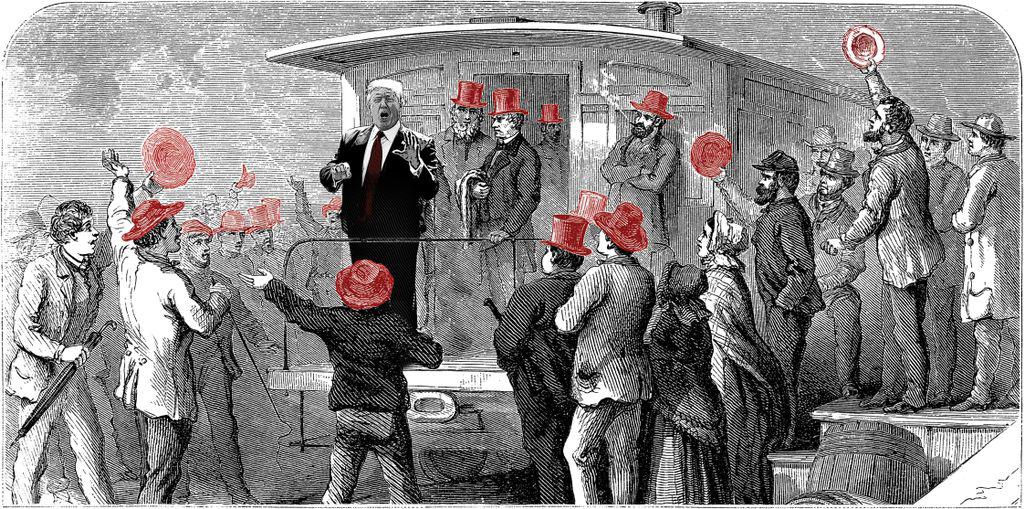Trump’s Not Richard Nixon. He’s Andrew Johnson.

IT’S NOT HARD TO think of a historical precedent for President Donald Trump’s attempts to trade military assistance to the Ukrainian government for actionable dirt on his chief political rival. The pathetic desperation of the crime itself, the bungling attempt at a cover-up, the incriminating transcript—“it really is stupid Watergate,” one Democrat told the Washington Post in September. The similarities to the scandal that forced Richard Nixon from office in 1974 extend to the people talking about it. An attorney on Nixon’s House impeachment committee, Bill Weld, is running for president. John Dean, Nixon’s White House counsel, and Carl Bernstein, who helped break the scandal, are CNN contributors. A Nixon dirty trickster, Roger Stone, recently went on trial for doing more of the same for Trump. And of course there’s Trump himself, channeling Nixon’s appeals to the “silent majority” and “law and order,” and pillorying the “enemy” press. There’s even an attempt to cover up a break-in at the Democratic National Committee—read the partial transcript of Trump’s call with the Ukrainians and you’ll find the president floating a cheese-brained conspiracy theory absolving Russia of its 2016 hacking of the DNC.
But coverage of the Trump fiasco is focusing on the wrong impeachment. The best parallel to Trump isn’t Nixon; it’s Andrew Johnson, a belligerent and destructive faux-populist who escaped conviction in the Senate by the thinnest of margins. Yet for more than a century, the official narrative of the first presidential impeachment has been butchered and distorted, reduced to a historical curiosity, a showdown between two irresponsible factions in which voices of reason ultimately triumphed. You were likely taught (if you were taught at all) that the 1868 fight to remove Johnson from office centered on an obscure and dubious law, the Tenure of Office Act, and that “Radical” Republicans—their influence inflated in the aftermath of the Civil War—overstepped their bounds in a quest for even more power.
This viewpoint was memorialized most famously in John F. Kennedy’s Pulitzer-winning 1956 book, Profiles in Courage, which canonized Edmund G. Ross, the Kansas Republican senator whose last-minute reversal led to Johnson’s acquittal in his Senate trial. The verdict, as recounted by Kennedy, was a triumph of sobriety and institutional scruple, of country over party, of pragmatism over ideology. It’s all the stories official Washington loves to tell about itself, wrapped into one: When both sides are to blame, real heroism can mean doing nothing.
Though popular critics like Kennedy have long framed the case against Johnson as a fight over something small—an act of legalistic nitpicking—the stakes could not have been
You’re reading a preview, subscribe to read more.
Start your free 30 days





